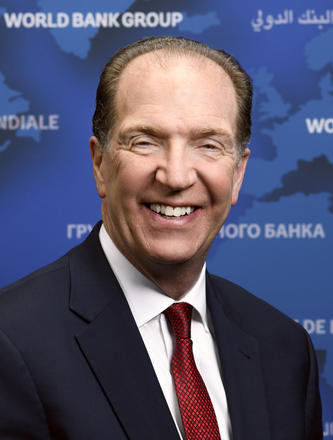The World Bank is the largest development lender to climate-related initiatives, having more than doubled its commitments to the next five-year Climate Change Action Plan to $200bn. President David Malpass is keen to work with both governments and the private sector to ensure sustainable economic growth after the Covid-19 crisis, and to expand the Bank’s influence in all aspects of sustainable development.
Q: How can the World Bank influence governments towards sustainable growth?
In addition to direct engagement with countries, from a convening standpoint, the bank is involved in many aspects of sustainable development. For example, it is very engaged in a range of global public activities, including biodiversity, marine plastic, solid waste disposal, and so on. We can build knowledge and convening power related to this. There are many aspects of climate change that go to the core economic activities of countries. For example, the use of fertilisers is very hard on greenhouse gas emissions. How do you change the system within countries so that they better use fertilisers from not only a profitability standpoint — from the crop yield standpoint — but also from the greenhouse gas emission standpoint? That conversation goes on daily — literally daily — within the bank.
Q: Are you satisfied with the level of international discussion around climate?
I think that there needs to be more discussion about projects' outcomes, rather than keeping track of the expenditures in this area. The ultimate outcome is to actually reduce or contain the growth of greenhouse gas emissions. We can use more discussion in that area and more data is welcome.
Q: What will make any type of finance sustainable?
There’s always been a challenge in getting private financing to invest in the global public good because the benefit goes to others. There needs to be commitment within a country itself to take account of and value the global public good. If we look back in history, for example, water pollution was caused in part by not taking into account the value, as a public good, of having cleaner water. Systems have to evolve to do this, and then there can be private, sustainable financing of the infrastructure needed to achieve the desired outcome.








